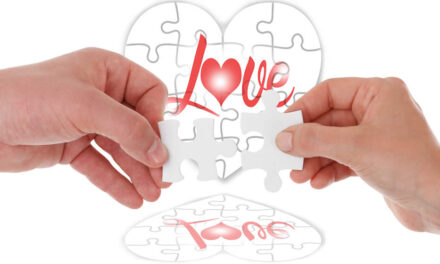How does music affect the way we think, feel, and behave?
One of the most important issues in the psychology of music is how music affects emotional experience (Juslin, 2019). Music has the ability to evoke powerful emotional responses such as chills and thrills in listeners.
Music is the shorthand of emotion. —Leo Tolstoy
Positive emotions dominate musical experiences. Pleasurable music may lead to the release of neurotransmitters associated with reward, such as dopamine. Listening to music is an easy way to alter mood or relieve stress. People use music in their everyday lives to regulate, enhance, and diminish undesirable emotional states (e.g., stress, fatigue). How does music listening produce emotions and pleasure in listeners?
The enjoyment of music appears to involve the same pleasure center in the brain as other forms of pleasure, such as food, sex, and drugs. Evidence shows that an aesthetic stimulus, such as music, can naturally target the dopamine systems of the brain that are typically involved in highly reinforcing and addictive behaviors.
In one study, participants listened to their favorite songs after taking naltrexone. Naltrexone is a widely prescribed drug for treating addiction disorders. The researchers found that when study subjects took naltrexone, they reported that their favorite songs were no longer pleasurable (Malik et al., 2017).
However, not everyone experiences intense emotional responses to music. Roughly 5% of the population do not experience chills. This incapacity to derive pleasure specifically from music has been called musical anhedonia.
Music can be experienced as pleasurable both when it fulfills and violates expectations. The more unexpected the events in music, the more surprising is the musical experience (Gebauer & Kringelbach, 2012). We appreciate music that is less predictable and slightly more complex.
There is also an intellectual component to the appreciation for music. The dopamine systems do not work in isolation, and their influence will be largely dependent on their interaction with other regions of the brain. That is, our ability to enjoy music can be seen as the outcome of our human emotional brain and its more recently evolved neocortex.
Evidence shows that people who consistently respond emotionally to aesthetic musical stimuli possess stronger white matter connectivity between their auditory cortex and the areas associated with emotional processing, which means the two areas communicate more efficiently (Sachs et al., 2016).
Memories are one of the important ways in which musical events evoke emotions. As the late physician, Oliver Sacks has noted, musical emotions and musical memory can survive long after other forms of memory have disappeared. Part of the reason for the durable power of music appears to be that listening to music engages many parts of the brain, triggering connections and creating associations.
Music often creates strong action tendencies to move in coordination with the music (e.g., dancing, foot-tapping). Our internal rhythms (e.g., heart rate) speed up or slow down to become one with the music. We float and move with the music.
Music doesn’t only evoke emotions at the individual level, but also at the interpersonal and intergroup level. Listeners mirror their reactions to what the music expresses, such as sadness from sad music, or cheer from happy music. Similarly, ambient music affects shoppers’ and diners’ moods.
Background music has a surprisingly strong influence on consumer behavior. For example, one study (North, et al., 1999) exposed customers in a supermarket drinks section to either French music or German music. The results showed that French wine outsold German wine when French music was played, whereas German wine outsold French wine when German music was played.
People crave ‘escapism’ during uncertain times to avoid their woes and troubles. Music offers a resource for emotion regulation. People use music to achieve various goals, such as to energize, maintain focus on a task, and reduce boredom.
For instance, sad music enables the listener to disengage from the distressing situations (breakup, death, etc.), and focus instead on the beauty of the music. Further, lyrics that resonate with the listener’s personal experience can give voice to feelings or experiences that one might not be able to express oneself.
Music is a powerful emotional stimulus that changes our relationship with time. Time does indeed seem to fly when listening to pleasant music. Music is therefore used in waiting rooms to reduce the subjective duration of time spent waiting and in supermarkets to encourage people to stay for longer and buy more (Droit-Volet, et al., 2013).
Hearing pleasant music seems to divert attention away from time processing. Moreover, this attention-related shortening effect appears to be greater in the case of calm music with a slow tempo.
10. Identity development.
Music can be a powerful tool for identity development (Lidskog, 2016). Young people derive a sense of identity from music. For example, the movie Blinded by the Light shows the power of Springsteen songs to speak to Javed’s experience on a personal level. The lyrics help him to find a voice he never knew he had, and the courage to follow his dreams, find love and assert himself.

![]()


























